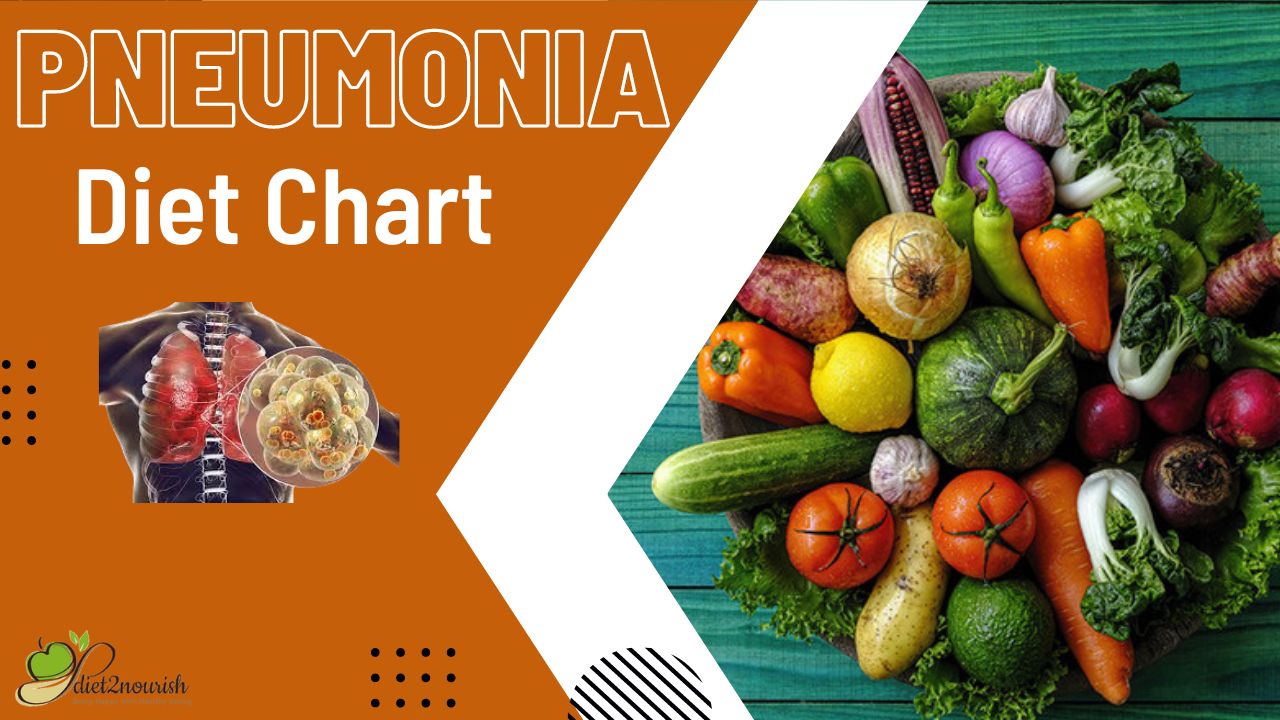Pneumonia is a serious lung infection that can cause breathing difficulties and other complications. Proper nutrition can play a crucial role in supporting the body's immune system and aiding in the recovery process. In this article, we will discuss a pneumonia diet chart and foods that may help to manage the symptoms and support the healing process.
High Protein Foods: During a pneumonia infection, the body requires extra energy to fight the infection and repair damaged tissue. Protein is essential for repairing tissues and building new cells, making it an important nutrient for people with pneumonia. Foods high in protein include lean meats, poultry, fish, eggs, beans, lentils, nuts, and seeds.
Vitamin C Rich Foods: Vitamin C is an antioxidant that supports the immune system and helps to reduce inflammation in the body. Foods rich in vitamin C include oranges, grapefruits, kiwi, strawberries, red and green peppers, and broccoli.
Zinc Rich Foods: Zinc is an essential mineral that supports the immune system and helps to reduce inflammation. Foods high in zinc include oysters, beef, pork, chicken, beans, nuts, and seeds.
Foods Rich in Vitamin A: Vitamin A is essential for maintaining healthy skin and mucous membranes, which can be affected by pneumonia. Foods rich in vitamin A include sweet potatoes, carrots, spinach, kale, and apricots.
Probiotic-Rich Foods: Probiotics are beneficial bacteria that help to support the gut microbiome, which can be disrupted by antibiotics used to treat pneumonia. Foods that are high in probiotics include yogurt, kefir, sauerkraut, kimchi, and kombucha.
Fluids: Staying hydrated is important for people with pneumonia, as it helps to thin mucus and make coughing more productive. Drinking water, herbal teas, and broths can help to keep the body hydrated and support the immune system.
Foods to Avoid: During a pneumonia infection, it is important to avoid foods that can cause inflammation in the body, such as processed foods, sugar, and refined carbohydrates. These foods can suppress the immune system and increase the risk of complications.
In addition to following a pneumonia diet chart it is also important to get adequate rest and avoid smoking and exposure to secondhand smoke. These lifestyle factors can compromise the immune system and make it more difficult for the body to recover from pneumonia.
It is important to note that a pneumonia diet chart is not a substitute for medical treatment. People with pneumonia should always follow their doctor's advice and take any prescribed medications as directed. A healthy diet can complement medical treatment and support the healing process, but it cannot replace medical care.
In conclusion, a pneumonia diet chart can help to support the immune system and aid in the recovery process. A diet rich in protein, vitamins, and minerals can provide the nutrients necessary for tissue repair and immune function. It is important to avoid foods that can cause inflammation and compromise the immune system. Along with a healthy diet, it is important to get adequate rest and avoid smoking and exposure to secondhand smoke to support the body's healing process.